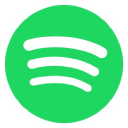We Make $110K/Year on YouTube Helping People Break Into Tech
Hello! Who are you and what business did you start?
My name is Eric and I started the YouTube channel ‘Tech Sales With Eric’ 2 years ago that has since turned into a full educational platform higherlevels.com. There’s been an insane amount that has happened in just 2 years including very early on meeting my cofounder Kris, but we’ve since grown our platform to over $10,000/month with all organic traffic from YouTube, and are just entering our hyper growth phase as we explore paid advertising and affiliate marketing.
Our flagship product is Tech Sales Ascension, an affordable bootcamp that has helped hundreds of students break into the top tech companies in the world as SDRs (Sales Development Representatives). Our customers are usually aged 22-40 looking for their first tech sales job. Many of them are transitioning careers from a salaried position and looking to increase their earnings through sales.
It took 8 months to make a dollar ($5 donation from a fan) and about 12 months to consistently have revenue coming in. We did $4,000 in revenue in 2022, and in...


































